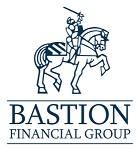Could the investment markets fallout from COVID-19 be the catalyst to reverse the industry super fund trend and redirect it towards professional financial advice and the responsible stewardship of underlying investment mandates? In an ironic twist of fate, a lack of governance around liquidity and risk management in industry fund investment mandates have left some of them high and dry and unable to cope in the current COVID-19 maelstrom.

How did we get to this point?
Unimpressed with the indiscretions of the financial services industry that were uncovered during the Hayne Royal Commission, Australian’s flocked to the industry super funds. In June 2018, the value of industry super funds ($632 billion) surpassed that of retail super funds ($622 billion) for the first time ever. Not a surprising outcome as industry funds have historically promoted themselves as being low cost through their pooled membership structures.
The sheer size of their growing balance sheets relative to the size of the Australian economy forced the industry super funds to look overseas for investment opportunities. Novel risk-on investment mandates replaced traditional asset allocation models. By way of example, QSuper abandoned its traditional asset allocation of 70% growth assets and 30% defensive assets, and steered its investment mandate to include 30% in unlisted assets. Similar moves by other industry funds towards unlisted assets became the norm (to be fair, in varying degrees, and some not as high as others). Over time and as markets soared, hubris set in. The cheques that were made out were huge. In September 2018, AustralianSuper bankrolled a major London CBD property development project with £280 million ($510 million) of members money (marking its first move into property debt). As recently as January 2020, QSuper spent $1 billion of members money on unlisted US real estate for diversification purposes.
Swollen allocations towards unlisted assets have been at the expense of other asset classes. At the time of writing, HostPlus holds a 0% allocation to Cash in their Balanced Option, whereas AustralianSuper holds just 3% Cash in their Balanced Option.
As Australians face into the economic fallout from COVID-19, they do so in the knowledge that post-GFC regulation has led to Australia having one of the best capitalised banking systems in the world. However despite its size ($2.9 trillion as at late 2019), the superannuation industry is not subject to the same capital requirements as the banks. As at 30 June 2019, AustralianSuper is the biggest fund, with assets worth $172.4 billion. If a proposed merger between SunSuper and QSuper goes ahead, it would make them the largest industry superannuation fund at $181 billion of assets. As the industry funds have grown, the regulators have remained silent. Regulation is meant to prevent – and govern – what could become harmful.
The pain has now started.
Last month, COVID-19 officially slaughtered the 11 year-old bull run in investment markets, and fear set in. A ‘dash to cash’ manifested in markets with indiscriminate selling across asset classes.
In Australia, a multitude of unadvised industry super fund members have requested full redemptions to cash. Innovations around technology have made it very easy for these members to action these requests online with the simple click of a mouse. Older members who may not be tech savvy, are subject to stressfully long call wait-times and that’s if they can get through.
Compounding the storm, and in response to the sudden unemployment and hardship caused by the immediate shutdown of non-essential businesses last month, the Morrison government announced a COVID-19 condition of release to super allowing eligible members to access up to $20,000 from their member balances. It is a fair assumption that the biggest takers of this access condition (and en masse) will be the hospitality and retail workers who are no longer employed. This is a demographic that widely uses industry funds as their fund of choice; funds such as AustralianSuper, HostPlus and REST.
In response to the fallout from COVID-19, Australian Super slashed 7.5% off the value of its unlisted assets last week. UniSuper and Cbus followed in quick succession (UniSuper slashed 10% off its unlisted property asset holdings). Other industry funds are reportedly considering doing the same. Failing allocations to other asset classes, their most liquid assets will now be shares and when shares are sold in a bear market, the investment losses will be crystallised to member accounts, further exasperating the liquidity fallout.
Last week, Assistant Minister Jane Hume slammed any super fund who said it would experience “discomfort” amid current market stresses, saying that it was a “collective failure of imagination” and an admission of “cavalier” decisions by the Trustees (who are meant to act on behalf of their members) in how they allowed irresponsible investment mandates. Unlisted assets are proving extremely illiquid right now at a time when liquidity is in extremely high demand. To date, requests by funds for emergency liquidity to meet member demands have not been entertained.
Where has the governance been around the industry fund investment mandates? Where have the regulators and the policy-makers been until now? Asleep at the wheel I say.
Where to from here?
As the economic car crash from COVID-19 plays out, and the industry super fund investment mandates crumble, the professional financial advice community has a very important role to play as we help pick up the pieces from the wreckage left in the wake of bad governance.
Professional financial advice is not about chasing the lowest costs, nor is it about boasting about the highest returns. It is about developing tailor-made strategies purposefully built for clients, their lifestyles and their aspirations.
Portfolio construction and asset allocation is not meant to be sexy. Investment mandates do not need to be opaque or complex. Four key tenets should underscore all investment mandates; asset allocation, cost, risk management… and a consideration towards liquidity.
Where to from here; seek professional financial advice from a Certified Financial Planner. Don’t leave your hard-earned retirement savings at the mercy of a fair-weather investment strategy.
Naomi Mee-Martino CFP® is a Director and Financial Planner with Bastion Financial Group www.BastionFinancialGroup.com.au
Important information
This article has been prepared by Bastion Financial Group Pty Ltd., Authorised Representative(s) of Godfrey Pembroke Group (ABN 38 078 629 973), an Australian Financial Services Licensee, registered office at Level 2, 26 Brisbane Avenue, Barton ACT 2600.
Any advice in this document is of a general nature only and has not been tailored to your personal circumstances. Accordingly, reliance should not be placed on the information contained in this document as the basis for making any financial investment, insurance or other decision. Please seek personal financial, tax and legal advice prior to acting on this information.
Opinions constitute our judgement at the time of issue and are subject to change. No member of the Godfrey Pembroke Group, nor their employees or directors, gives any warranty of accuracy, nor accepts any responsibility for errors or omissions in this document.




